#tudorsource
Photo
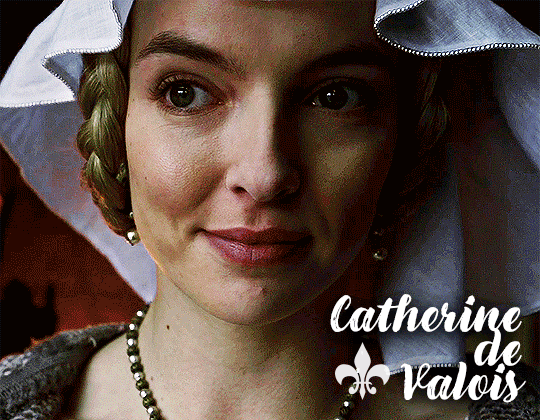
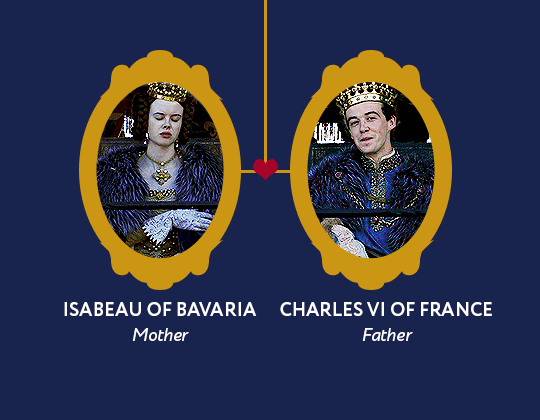

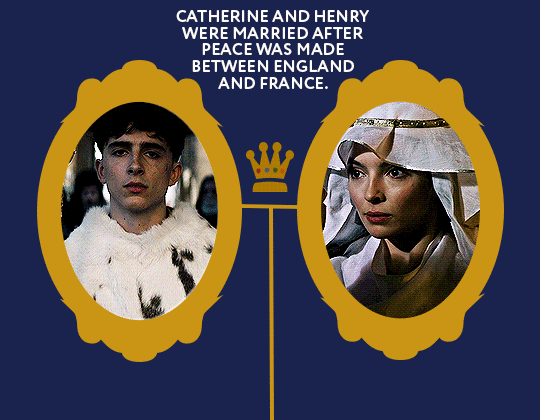
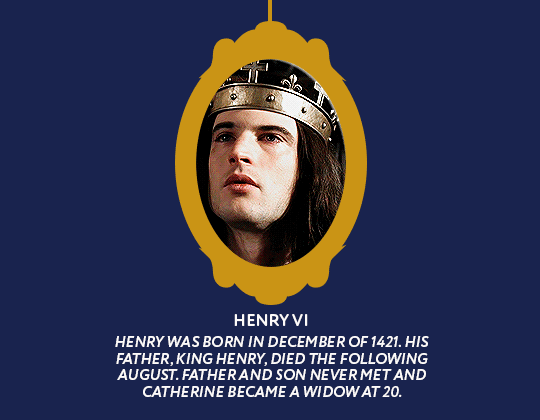

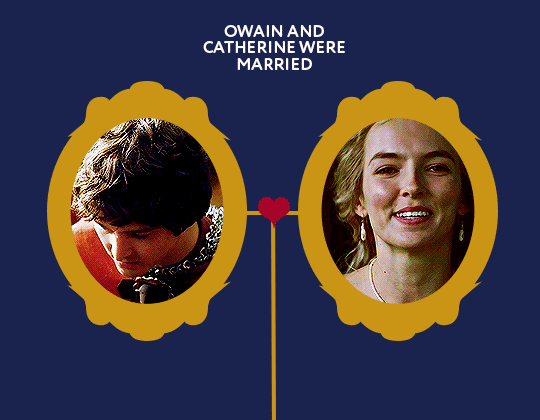


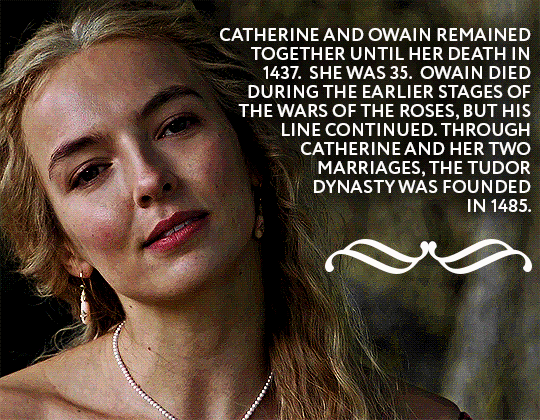
CATHERINE OF VALOIS ❀
QUEEN CONSORT OF ENGLAND
#catherine of valois#catherine de valois#periodedit#perioddramaedit#historyedit#onlyperioddramas#tudorsource#tudorgifs#henry v#henry vi#henry tudor#henry vii#isabeau of bavaria#charles vi of france#charles vi#elizabeth of york#hundred years war#the wars of the roses#margaret beaufort#jodie comer#alexander vlahos#timothee chamalet#perioddramasource#weloveperioddrama#period drama#history#gifshistorical#middle ages#medieval#tudor
800 notes
·
View notes
Text

"Faced with the stark reality of her situation, the Queen’s composure was disintegrating; there is no evidence that she started screaming, as at least one historian has asserted, although she seems already to have been in a fragile state: it was only three months since she had miscarried, and during that time she had suffered increasing anxiety and fear, culminating in her arrest. After disembarking at the privy steps at the Court Gate and “entering in” the Tower, she “fell down on her knees before the lords” on the cobblestones, “beseeching God to help her as she was not guilty of her accusement.” She must have looked a pitiful sight, “her soul beaten down with afflictions to the earth,” for she would have been aware that it was rare for anyone accused of treason to escape condemnation and death. The councillors made no comment but formally committed her to the custody of the constable. As they made to depart, Anne got to her feet and “desired the said lords to beseech the King’s grace to be good unto her; and so they left her there, prisoner.”
#perioddramaedit#anne boleyn#history#the tudors#natalie dormer#edit#henry viii#19th may#16th century#tudor england#tudorssource#tudorsource#tudorsedit#tudors#history edit#historical#historical figures#historyedit#perioddramacentral#tudor period#period drama#alison weir#graphic#anneboleynedit#thetudorsedit#quote#queen#royalty#tudor dynasty#tower of london
83 notes
·
View notes
Photo


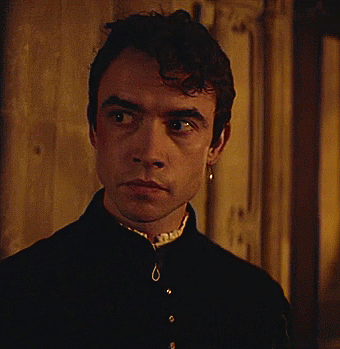
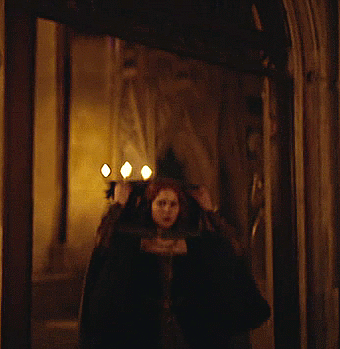
Robert & Elizabeth + looking at each other
#becoming elizabeth#becomingelizabethedit#robert dudley#elizabeth i#robert x elizabeth#perioddramaedit#weloveperioddrama#perioddramacentral#onlyperioddrama#tudorsource
391 notes
·
View notes
Text
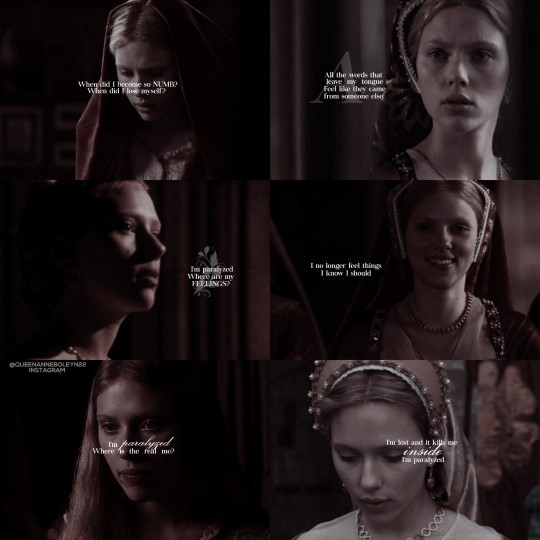
"It was probably William Cornish who produced the pageant and played the role of Ardent Desire: Hall makes it very clear that it was not the King. This was Cornish’s last major pageant: he died in 1523, and was succeeded as deviser of court revels by John Rightwise, who continued in the same tradition. Rightwise, a clever Latinist, succeeded William Lily that same year as High Master of St. Paul’s School. Mary Tudor, Duchess of Suffolk, led the dancers as Beauty; the Countess of Devon played the role of Honour; Mary Boleyn was Kindness; Jane Parker, the daughter of Lord Morley and shortly to be betrothed to Mary’s brother George Boleyn, was Constancy; and Anne Boleyn, Mary’s younger sister, recently recalled from the French court because of the deteriorating political situation, was Perseverence. Anne Boleyn was just embarking on her spectacular but ultimately disastrous career, and this was her public debut at the English court. Born around 1501, she had spent her formative years first at the brilliant court of Margaret of Austria, then in the household of Mary Tudor during her brief reign as Queen of France, and later as a maid of honour to the pious Queen Claude. At the Burgundian and French courts, Anne had gained a fine education and learned every sophisticated accomplishment and on her return to England, her father—or possibly her sister’s influence—was able to secure her a place in Queen Katherine’s household. Anne stood out among the ladies at the English court because she was so French in her manners and style of dress, and therefore at the forefront of fashion. Anne was then about twenty-one, rather old to be unmarried. For two years now, her father had been negotiating to wed her to Sir James Butler, heir to the Earl of Ormonde, to settle a dispute over the Ormonde inheritance; but the matter was dropped for reasons that are not clear. Thanks not only to Sir Thomas Boleyn’s talents as a diplomat and courtier, but also no doubt to his daughter Mary’s occasional occupancy of the royal bed, the Boleyns were in the ascendant and becoming very influential." - Alison Weir, The king and his court.
#perioddramasource#perioddramacentral#perioddramaedit#mary boleyn#scarlett johansson#the other boleyn girl#theotherboleyngirledit#tobgedit#tobg#maryboleynedit#tudor england#tudorssource#tudorsource#tudorsedit#the tudors#historical women#history#historyedit#the other boleyn girl#boleyn#anne boleyn#henry viii#eric bana#lyrics#lyricsedit#alison weir#sjohanssonedit#16th century#english history#historical
55 notes
·
View notes
Photo






#becoming elizabeth#becomingelizabethedit#tudoredit#robert dudley#elizabeth i#perioddramaedit#perioddramacentral#onlyperioddrama#weloveperioddrama#tudorsource#the way elizabeth lights up everytime she sees robert
178 notes
·
View notes
Text
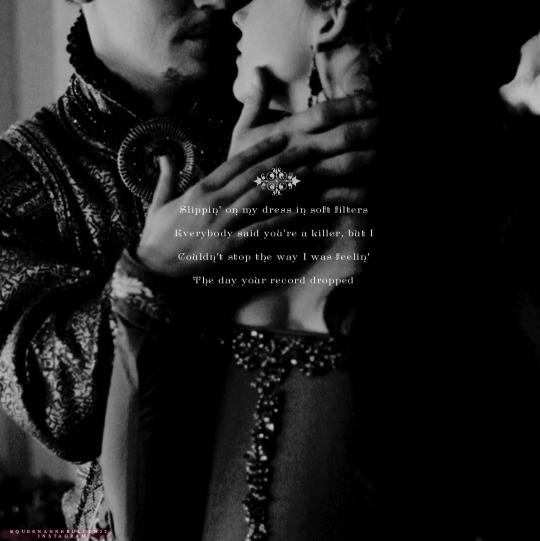

"Anne played a major part in pushing Henry into asserting his headship of the Church. Yet over and beyond this, Anne was a strong supporter of the religious reform…Brief though Anne’s influence was, it was a thousand days of support for reform from the throne itself. And hindsight can say more. The breach in the dyke of tradition which she encouraged and protected made the flood first of reformed, and later of more specifically Protestant Christianity, unstoppable. Catholic hatred of Anne damned her for the break with Rome and for the entrance of heresy into England. It was right on both accounts.
Hers was no superficial faith. Since her education in France she had an abiding interest in the New Learning and the religious reformation that was spreading like a revolution in thinking across northern Europe. Her views were evangelical, many would later say “Lutheran”. She read the Bible daily and believed that everyone should be able to read God’s word in a language they could understand." - Johanna Denny
#perioddramaedit#the tudors#anne boleyn#history#natalie dormer#edit#history edit#thetudorsedit#thetudors#tudorssource#tudor history#white mustang#lana del rey lyrics#lanadelreyedit#lana del rey#b&w#lyricsedit#perioddramacentral#perioddramasource#tudorsource#tudorsedit#anne x henry#jonathan rhys meyers#henry viii#henry viii x anne boleyn#anne boleyn x henry viii#henry tudor#aesthetic#16th century
134 notes
·
View notes
Text

"Deserted, cut off and disoriented in time, Anne became avid for news. She built great castles of imagination - that it would not rain until she was released, that the evangelical bishops would intervene on her behalf, that most English people were praying for her, that a disaster from heaven would follow her execution. She harked back to the happy time with Margaret of Austria. Sometimes her hope ran high - the king was doing it all to test her, she would be sent to a nunnery; at others she would be determined to die, and would discuss the technical details with Kingston as if it was the most amusing subject in the world. There would, she said, be no difficulty in finding her a nickname: ‘Queen Anne the Headless’. Then her mind would run over details of her treatment or she would recall a promising bet on the game of tennis she had been watching when first summoned before the commissioners - ‘if it [the chase] had been laid she had won.’ But, increasingly, preparation for death occupied her thoughts, hours spent with her almoner and before the blessed sacrament until her spirit reached the exaltation of the martyr. Kingston wrote towards the end: ‘I have seen many men and also women executed and that they have been in great sorrow, and to my knowledge this lady hath much joy and pleasure in death. " - Eric Ives, 'The life and death of Anne Boleyn'
#anne boleyn#the tudors#history#natalie dormer#perioddramaedit#history edit#eric ives#anneboleynedit#queen anne boleyn#tudor dynasty#the tudor dynasty#tudorsource#tudorsedit#graphic#tudors#thetudors#perioddramacentral#tudor period#tudorerasource#period drama#userthing#historyedit#historical figures#16th century#tower of london#english history#british history#henry viii#jonathan rhys meyers#royalty
131 notes
·
View notes
Text

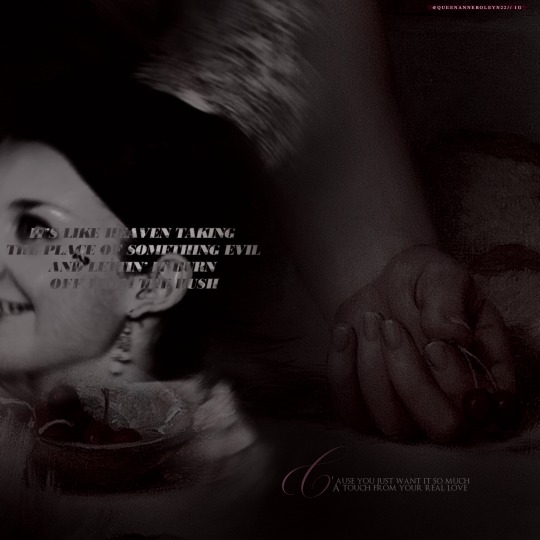
𝓘𝓽'𝓼 𝓵𝓲𝓴𝓮 𝓱𝓮𝓪𝓿𝓮𝓷 𝓽𝓪𝓴𝓲𝓷𝓰 𝓽𝓱𝓮 𝓹𝓵𝓪𝓬𝓮 𝓸𝓯 𝓼𝓸𝓶𝓮𝓽𝓱𝓲𝓷𝓰 𝓮𝓿𝓲𝓵
𝓐𝓷𝓭 𝓵𝓮𝓽𝓽𝓲𝓷' 𝓲𝓽 𝓫𝓾𝓻𝓷
𝓸𝓯𝓯 𝓯𝓻𝓸𝓶 𝓽𝓱𝓮 𝓻𝓾𝓼𝓱
"On Saturday, Easter Eve, dame Anne went to mass in Royal state, loaded with jewels, clothed in a robe of cloth of gold friese. The daughter of the duke of Norfolk, who is affianced to the duke of Richmond, carried her train; and she had in her suite 60 young ladies, and was brought to church, and brought back with the solemnities, or even more, which were used to the Queen. She has changed her name from Marchioness to Queen, and the preachers offered prayers for her by name. All the world is astonished at it for it looks like a dream, and even those who take her part know not whether to laugh or to cry.
The King is very watchful of the countenance of the people, and begs the lords to go and visit and make their court to the new Queen, whom he intends to have solemnly crowned after Easter, when he will have feastings and tournaments; and some think that Clarencieux went four days ago to France to invite gentlemen at arms to the tourney, after the example of Francis, who did so at his nuptials. I know not whether this will be before or after, but the King has secretly appointed with the archbishop of Canterbury that of his office, without any other pressure, he shall cite the King as having two wives; and upon this, without summoning the Queen, he will declare that he was at liberty to marry as he has done without waiting for a dispensation or sentence of any kind." - E. Chapuys, LP VI. 351
#perioddramaedit#the tudors#history#anne boleyn#natalie dormer#edit#history edit#henry viii#lana del rey#cherry#lanadelreyedit#anneboleynedit#perioddramacentral#tudorsource#graphic#16th century#tudor dynasty#tudor england#english history#british history#1533#queen anne boleyn#eustace chapuys#tudors#tudor era#thetudorsedit#dailytudors#gifshistorical#tudorsedit#women of history
51 notes
·
View notes
Text
"I have no desire to make windows into men's souls"
Elizabeth I's response to the religious divide she faced when ascending the throne of England. She did not share the strident religious views of either of her siblings, and wanted to help England heal from the Inquisition tactics used by Mary.
0 notes